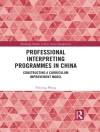This book provides a contemporary overview of work in critical ethnography that focuses on language and race/ism in education, as well as cutting edge examples of recent critical ethnographic studies addressing these issues. The studies in this book, while centred primarily on the North American context, have wide international significance and interdisciplinary reach and address a range of educational contexts across K-12 education and less formal educational settings. They explore the racialized construction, positioning and experiences of bi/multilingual students, and the implications of this for educational policy, pedagogy and practice. The chapters draw on a range of critical theoretical perspectives, including CRT, Lat Crit, Indigenous epistemologies and bilingual education; they also address significant methodological questions that arise when undertaking critical ethnographic work, including the key issues of positionality and critical reflexivity.
Tabella dei contenuti
Contributors
Deborah Palmer: Foreword
Stephen May and Blanca Caldas: Introduction: Contextualizing and Reimagining Critical Ethnography in Education
Part 1: Theoret/Methodolog/ical Connections
Chapter 1. Stephen May: Critical Ethnography, Language, Race/ism and In/equity in Education: Charting the Field
Chapter 2. Justin A. Coles: Beyond Silence: Disrupting Antiblackness through Black Crit Ethnography and Black Youth Voice
Chapter 3. Youmna Deiri: Multilingual Radical Intimate Ethnography
Part 2: Rethinking Reflexivity and Positionality
Chapter 4. Laura C. Chávez-Moreno: Race Reflexivity: Examining the Unconscious for a Critical Race Ethnography
Chapter 5. Idalia Nuñez and Suzanne García-Mateus: Interrogating our Interpretations and Positionalities: Chicanx Researchers as Scholar Activists in Solidarity with our Communities
Chapter 6. Julie S. Byrd Clark: Toward Reflexive Engagement: Critical Ethnography’s Challenge to Linguistic Homogeneity and Binary Relationships
Chapter 7. Randy Clinton Bell, Manuel Martinez and Brenda Rubio: Dialogical Relationships and Critical Reflexivity as Emancipatory Praxis in a Community-Based Educational Program
Part 3: Conflicts, Collaborations and Community
Chapter 8. Teresa L. Mc Carty: Critical Ethnographic Monitoring and Chronic Raciolinguistic Panic: Problems, Possibilities and Dreams
Chapter 9. Prem Phyak: Unequal Language Policy, Deficit Language Ideology and Social Injustice: A Critical Ethnography of Language Education Policies in Nepal
Chapter 10. Dan Heiman and Michelle Yanes: ‘But This Program is Not For Them!’: Challenging the Gentrification of Dual Language Bilingual Education Through Critical Ethnography
Chapter 11. Blanca Caldas: Becoming an ‘Avocado’ – Embodied Rescriptings in Bilingual Teacher Education Settings: A Critical Performance Ethnography
Index
Circa l’autore
Blanca Caldas is Associate Professor in Second Language Education and Elementary Education in the College of Education and Human Development at The University of Minnesota Twin Cities, USA. Her research focuses on bilingual education, preservice and in-service bilingual teacher education, minoritized language practices and pedagogies, and critical pedagogy.












